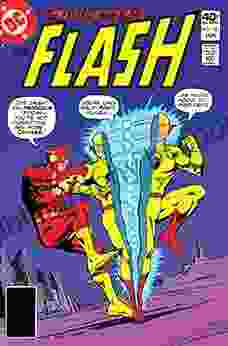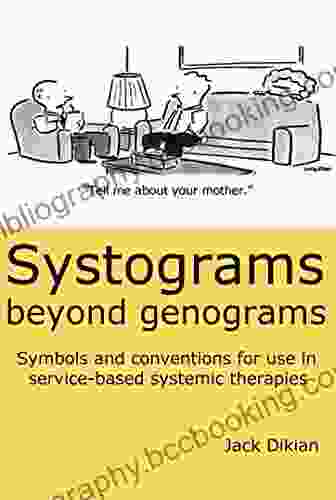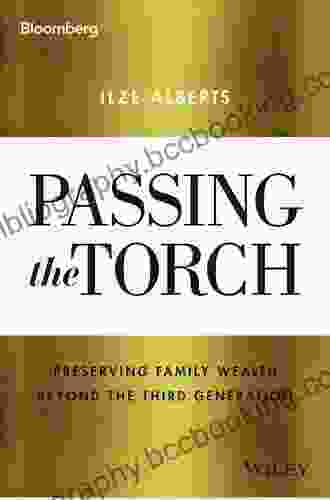Unlock the Power of Symbols and Conventions in Service-Based Systemic Therapies

Symbols and conventions are indispensable tools in service-based systemic therapies, empowering therapists and clients alike to navigate the complexities of human interactions and relationships. This comprehensive article delves into the profound impact of these powerful elements, providing practical insights and real-life examples to illustrate their effectiveness.
The Power of Symbols
Symbols are universal representations that transcend language and cultural barriers. They evoke deep emotions, resonate with subconscious experiences, and facilitate meaningful communication. In therapy, symbols allow therapists and clients to:
5 out of 5
| Language | : | English |
| File size | : | 603 KB |
| Text-to-Speech | : | Enabled |
| Screen Reader | : | Supported |
| Enhanced typesetting | : | Enabled |
| Word Wise | : | Enabled |
| Print length | : | 16 pages |
| Lending | : | Enabled |
- Express unspoken emotions: Symbols can convey feelings that are difficult to verbalize.
- Explore complex relationships: Symbols can represent the dynamics and roles within relationship systems.
- Foster healing and growth: Symbols can inspire hope, provide a sense of direction, and promote personal transformation.
Types of Symbols
Therapists use a wide range of symbols, including:
- Natural symbols: Trees, flowers, animals, and weather phenomena.
- Archetypal symbols: Heroes, villains, monsters, and the journey.
- Personal symbols: Unique images or objects that hold significance for the client.
Using Symbols Effectively
To effectively use symbols in therapy, therapists must:
- Respect client experience: Allow clients to guide the interpretation and exploration of symbols.
- Provide a safe and supportive environment: Create a space where clients feel comfortable sharing their symbolic experiences.
- Integrate symbols with other techniques: Use symbols in conjunction with verbal therapy, role-playing, and other modalities.
Case Study: Exploring Grief with a Nature Symbol
Consider a client grieving the loss of a loved one. The therapist introduces a symbol of nature, such as a tree. The client connects with the tree's resilience and strength amidst adversity, finding solace and inspiration in its symbolism.
The Importance of Conventions
Conventions are agreed-upon guidelines that structure the therapeutic process, providing a framework for collaboration and communication. In systemic therapies, conventions include:
- Therapeutic boundaries: Establish clear boundaries to protect both therapist and client.
- Informed consent: Ensure that clients understand the therapeutic process and their responsibilities.
- Confidentiality: Maintain the privacy and confidentiality of client information.
Benefits of Conventions
Conventions offer numerous benefits:
- Clarity and predictability: Conventions provide a structured framework that helps clients feel safe and supported.
- Professionalism: Conventions maintain ethical standards and foster trust between therapist and client.
- Empowerment: Conventions empower clients to participate actively in the therapeutic process.
Case Study: Using a Boundary Convention to Address Power Dynamics
In a family therapy session, the therapist notices that one member consistently interrupts and dominates conversations. The therapist establishes a convention for each family member to have an equal opportunity to speak, creating a more balanced and equitable dynamic.
Symbols and conventions are essential components of service-based systemic therapies. They empower therapists and clients to:
- Express and process emotions
- Explore complex relationships
- Foster healing and growth
To effectively use symbols and conventions, therapists must be respectful, supportive, and skilled in integrating them with other therapeutic techniques. By embracing the power of these elements, therapists can create a transformative and empowering experience for clients.
5 out of 5
| Language | : | English |
| File size | : | 603 KB |
| Text-to-Speech | : | Enabled |
| Screen Reader | : | Supported |
| Enhanced typesetting | : | Enabled |
| Word Wise | : | Enabled |
| Print length | : | 16 pages |
| Lending | : | Enabled |
Do you want to contribute by writing guest posts on this blog?
Please contact us and send us a resume of previous articles that you have written.
 Book
Book Novel
Novel Page
Page Chapter
Chapter Text
Text Story
Story Genre
Genre Reader
Reader Library
Library Paperback
Paperback E-book
E-book Magazine
Magazine Newspaper
Newspaper Paragraph
Paragraph Sentence
Sentence Bookmark
Bookmark Shelf
Shelf Glossary
Glossary Bibliography
Bibliography Foreword
Foreword Preface
Preface Synopsis
Synopsis Annotation
Annotation Footnote
Footnote Manuscript
Manuscript Scroll
Scroll Codex
Codex Tome
Tome Bestseller
Bestseller Classics
Classics Library card
Library card Narrative
Narrative Biography
Biography Autobiography
Autobiography Memoir
Memoir Reference
Reference Encyclopedia
Encyclopedia Jack Anderson
Jack Anderson Melia Keeton Digby
Melia Keeton Digby Yetta Young
Yetta Young Iona Italia
Iona Italia Insun Lee
Insun Lee Jerry Oppenheimer
Jerry Oppenheimer Ian Fleming
Ian Fleming Michael Chekhov
Michael Chekhov Scott Colby
Scott Colby Sujatha Gidla
Sujatha Gidla Mary Alice Monroe
Mary Alice Monroe Ilona Andrews
Ilona Andrews Lee Engfer
Lee Engfer Jocelyn Nicole Johnson
Jocelyn Nicole Johnson Reni K Amayo
Reni K Amayo Lindy Hughes
Lindy Hughes Victoria Rivera Mckinley
Victoria Rivera Mckinley J M Sandler
J M Sandler Iain Gately
Iain Gately Irvin B Tucker
Irvin B Tucker
Light bulbAdvertise smarter! Our strategic ad space ensures maximum exposure. Reserve your spot today!

 Isaiah PowellFruits Basket: The Three Musketeers Arc - A Tale of Secrets, Laughter, and...
Isaiah PowellFruits Basket: The Three Musketeers Arc - A Tale of Secrets, Laughter, and... Fletcher MitchellFollow ·8.4k
Fletcher MitchellFollow ·8.4k Sammy PowellFollow ·15.1k
Sammy PowellFollow ·15.1k Howard BlairFollow ·4.5k
Howard BlairFollow ·4.5k Percy Bysshe ShelleyFollow ·10.5k
Percy Bysshe ShelleyFollow ·10.5k Pat MitchellFollow ·6.6k
Pat MitchellFollow ·6.6k Brett SimmonsFollow ·17.5k
Brett SimmonsFollow ·17.5k Henry David ThoreauFollow ·18.7k
Henry David ThoreauFollow ·18.7k Finn CoxFollow ·8.6k
Finn CoxFollow ·8.6k

 Luke Blair
Luke Blair101 Amazing Facts About Australia: A Journey Through the...
A Literary Expedition Unveiling the Treasures...

 Harry Hayes
Harry HayesWitness the Velocity and Legacy of the Scarlet Speedster:...
Delve into the Lightning-Charged...

 Stan Ward
Stan Ward101 Amazing Facts About Ancient Egypt: Unraveling the...
: A Timeless Realm of Wonder Ancient Egypt, a...

 Stephen King
Stephen KingEscape into Adventure: Unveil the Secrets of Adventure...
In the annals of comic book history,...

 Forrest Blair
Forrest BlairThe Oxford Dog Training Company Presents: A Holistic...
In the realm of dog...
5 out of 5
| Language | : | English |
| File size | : | 603 KB |
| Text-to-Speech | : | Enabled |
| Screen Reader | : | Supported |
| Enhanced typesetting | : | Enabled |
| Word Wise | : | Enabled |
| Print length | : | 16 pages |
| Lending | : | Enabled |












